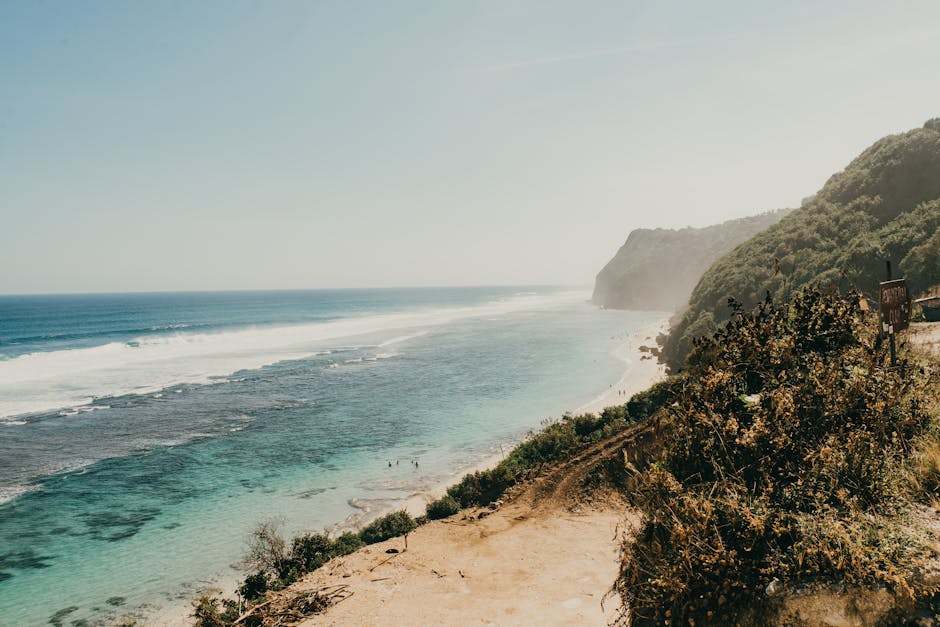Exploring Bali’s Wild Side: Ethical Considerations
The Importance of Ethical Wildlife Tourism
I believe that ethical wildlife tourism is crucial for preserving the natural beauty and biodiversity of Bali. It ensures that animal encounters are conducted responsibly, with respect for the well-being of the wildlife. By promoting ethical practices, visitors can enjoy engaging with animals in a sustainable manner that prioritizes conservation efforts and the protection of endangered species.
Bali’s Efforts in Promoting Ethical Encounters
In Bali, there are commendable initiatives in place to promote ethical animal encounters. The island has been proactive in implementing regulations to safeguard wildlife and their habitats. By supporting ethical encounters, Bali aims to raise awareness about conservation issues and educate visitors on the importance of respecting and protecting the environment. Through these efforts, Bali strives to establish itself as a role model for ethical wildlife tourism in the region.
Bali’s Top Ethical Wildlife Encounters

1. Monkey Forest Sanctuary
Exploring the Monkey Forest Sanctuary in Bali offers a unique opportunity to observe and interact with long-tailed macaques in their natural habitat. It’s crucial to remember that these primates are wild animals, so maintaining a safe distance and respecting their space is essential for both their well-being and visitors’ safety. By promoting education on wildlife conservation and responsible behavior around these animals, the sanctuary aims to raise awareness about the importance of protecting Balinese wildlife.
2. Turtle Conservation and Education Centre
Visiting the Turtle Conservation and Education Centre in Bali provides insights into the conservation efforts dedicated to protecting endangered sea turtle species. Here, you can learn about turtle rehabilitation programs, nesting activities, and hatchling releases into the ocean. Supporting such initiatives by spreading awareness and contributing to conservation projects helps sustain the delicate balance of marine ecosystems and ensures the survival of these fascinating sea creatures for future generations.
3. Bali Bird Park & Reptile Park
At the Bali Bird Park & Reptile Park, guests can marvel at a diverse array of bird species and reptiles while supporting ethical wildlife practices. This sanctuary not only serves as a haven for avian and reptilian species but also focuses on conservation, education, and breeding programs to safeguard vulnerable populations. By visiting and learning about these remarkable creatures, individuals can play a part in wildlife preservation and gain a deeper appreciation for Bali’s rich biodiversity.
4. Bali Marine and Safari Park
Embarking on a journey to the Bali Marine and Safari Park allows visitors to witness a harmonious blend of marine life and land animals within a responsibly managed environment. Through immersive experiences like marine animal encounters, safari expeditions, and educational presentations, this park aims to promote wildlife conservation and ecological awareness. By supporting sustainable tourism practices and ethical interactions with the park’s inhabitants, guests contribute to the preservation of Bali’s natural heritage and ecosystem health.
Nature Preserves and Their Role in Conservation
Continuing our exploration of Bali’s commitment to wildlife conservation, I delve into the vital role of nature preserves in safeguarding the island’s biodiversity.
1. West Bali National Park
In West Bali National Park, extensive efforts are made to protect the diverse flora and fauna native to the region. As I navigate the park’s lush landscapes, I witness firsthand the conservation initiatives aimed at preserving endangered species such as the Bali starling and the Javan rusa deer. The park serves as a crucial sanctuary for these animals, offering a safe haven for their continued survival amidst environmental threats.
2. Bali Barat National Park
Bali Barat National Park stands as a testament to Bali’s dedication to conservation. Here, I am immersed in the rich biodiversity of the park, home to endemic species like the Bali myna and the banteng. Through robust conservation programs and habitat preservation efforts, the park plays a pivotal role in protecting these unique species from the perils of habitat loss and poaching, ensuring their longevity for generations to come.
3. Mangrove Information Center
At the Mangrove Information Center, I gain valuable insights into the importance of mangrove ecosystems in sustaining Bali’s coastal habitats. These vital ecosystems serve as nurseries for marine life, offer protection against coastal erosion, and support biodiversity. Through educational programs and conservation initiatives, the center raises awareness about the significance of mangroves and the need to preserve these critical habitats for the well-being of both wildlife and local communities.
Visitor Guidelines for Ethical Encounters
Do’s and Don’ts While Interacting with Wildlife
When interacting with wildlife in Bali, it’s crucial to follow some essential do’s and don’ts to ensure both your safety and the animals’ well-being. Here are some guidelines to keep in mind:
Do’s:
- Maintain a safe distance: Respect the animals’ space and avoid getting too close to them to prevent provoking stress or aggression.
- Observe quietly: Enjoy watching wildlife in silence to avoid disturbing their natural behavior.
- Follow park rules: Always adhere to the regulations set by the nature preserves and wildlife sanctuaries to protect the animals and their habitats.
- Support conservation efforts: Learn about the conservation projects in place and contribute to initiatives that aim to preserve Bali’s unique wildlife.
Don’ts:
- Feed the animals: Refrain from feeding wildlife as human food can be harmful to their health and disrupt their natural diet.
- Touch or handle the animals: Avoid touching or approaching wildlife as it can cause distress and interfere with their daily routines.
- Use flash photography: Flash photography can startle the animals and may have negative effects on their nocturnal behavior.
- Buy products made from wildlife: Avoid purchasing souvenirs or products made from wildlife as it encourages illegal wildlife trading.
How to Choose Ethical Tour Operators
Selecting ethical tour operators is essential for promoting responsible wildlife tourism in Bali. Here’s how to identify trustworthy operators who prioritize animal welfare:
- Research their background: Look for tour operators with a proven track record of supporting ethical wildlife encounters and conservation efforts.
- Check for certifications: Choose tour operators affiliated with recognized organizations that promote sustainable and ethical practices in wildlife tourism.
- Inquire about their policies: Ask about the company’s policies on wildlife interactions, conservation contributions, and support for local communities.
- Read reviews: Consult online reviews and testimonials from previous customers to gauge the operator’s commitment to ethical practices.
- Avoid activities that exploit wildlife: Refrain from booking tours that involve activities like elephant rides, captive dolphin performances, or any form of animal exploitation.
By selecting responsible tour operators and following ethical guidelines, visitors can contribute to the preservation of Bali’s wildlife while enjoying meaningful and sustainable wildlife encounters.
Supporting the Local Economy Through Conservation
The Impact on Local Communities
In Bali, wildlife conservation efforts have a direct impact on local communities. By promoting ethical animal tourism and preserving nature reserves, communities benefit from increased tourism revenue and sustainable development. When visitors engage in responsible wildlife encounters and support conservation initiatives, they contribute to the economic growth of local businesses, such as tour operators, accommodations, and souvenir shops. This sustainable approach not only protects Bali’s unique wildlife but also empowers local communities by creating jobs and fostering eco-friendly practices.
Sustainable Tourism Practices in Bali
Embracing sustainable tourism practices is crucial for the long-term preservation of Bali’s diverse ecosystems. By prioritizing conservation and responsible travel, Bali ensures the protection of its natural resources for future generations. Sustainable tourism practices in Bali include promoting wildlife-friendly activities, supporting local conservation projects, and educating visitors about the importance of environmental preservation. From eco-friendly accommodations to wildlife sanctuaries, Bali offers a range of sustainable tourism options that allow travelers to explore the island’s natural beauty while actively participating in conservation efforts. By incorporating sustainable practices into their travel plans, visitors can help preserve Bali’s wildlife and support the local economy simultaneously.




